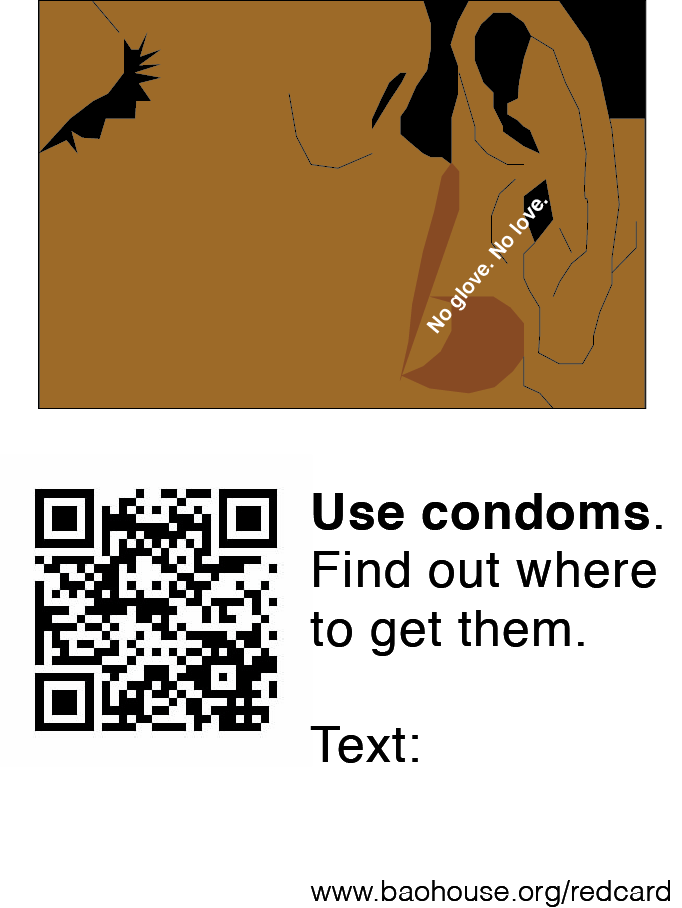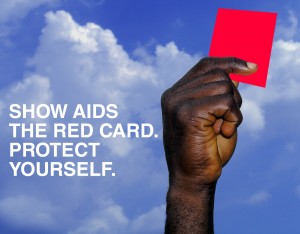
Next month I’ll be in Kumasi, Ghana doing field research and I thought I’d share what I hope to accomplish over there, since my work is informed by much of what I write about on this blog. (I will be blogging over here.) We hope to set up an information system by which Ghanaians can find condom sellers nearby. The primary interface will be text messaging using a fantastic open-source project called FrontLineSMS. By texting a certain number, the user will be asked to send their district and a list of nearby landmarks. The database will send back a list of condom sellers within a reasonable walking distance. We also hope to have several other front-end access points that are already becoming popular places to socialize. Our aim is to increase access to condoms in order to reduce the infection rate of HIV/AIDS. As of 2009, according to UNICEF, 230,000 people (about 2% of the population) live with HIV in Ghana. I should also note that cell phones are not a luxury item in Ghana. Adoption has exploded over the past several years, and it is estimated that about 67% of Ghanians own a cell phone.

Why confront such a devastating disease with the same technology you would use to organize a trip to the movies? The answer is simple: we want people to think of this service at the moment they are planning their night. Not too long ago, I attended a talk by Dr. Lynn Miller of the Annenburg School of Communication and Department of Psychology at the University of Southern California. Her talk was on the creation of interactive sexual education videos that were meant to engage the user at the moment of decision. Reducing the barriers to choosing safe sex at the moment one is contemplating or pursuing sex, will reduce occurrences of unprotected sex. The project we are implementing here, is similar. Whereas Dr. Miller’s work was on education, we are providing a convenient service that helps people make the right decision at the right time.
It is not enough to have condoms available, if no one knows where they are. Initial research and communications with informants have shown that locating condoms can be difficult. Additionally, less than one in five Ghanians (PDF) have an “accepting attitude” of people living with HIV/AIDS, indicating that discussing sexually transmitted diseases is taboo. By augmenting the city, using communication technologies that are wildly popular, Ghanaians will be able to find a seller of condoms efficiently, reliably, and (if they feel so inclined) discreetly. This is something that we, as theorists, should take note of: The augmenting of the physical realm changes how we interact with the world in very subtle ways. The digital and virtual components of our augmented reality may not illuminate an entirely new world, but it can help us tackle problems that are bigger than “where do I find the best coffee?”
EDIT [12:22EST] : The picture captions did not attribute authorship, as intended.

Comments 4
A Brief Summary of Actor Network Theory » Cyborgology — December 2, 2011
[...] critical analysis. Regardless of whether or not you think it is worth pondering these questions, people all over the world are engaging in something when they post a Facebook status or check in to a coffee shop on [...]
Augmented Urban Spaces: Britain’s Safe Text Street » Cyborgology — December 3, 2011
[...] example, David Banks has written on his work in Kumasi, Ghana, where they are developing a mobile phone based condom location service in an effort to combat HIV/AIDS. With the widespread adoption of cell phones (last reported at 67% [...]
We Have Never Been Actor Network Theorists » Cyborgology — December 15, 2011
[...] prosthetics and depictions of disability in the media. My work in gender and online cooking shows, mobile information systems in the developing world, augmented warfare, and the changing landscape of surveillance and sousveillance have also been [...]
Field Work in Kumasi » Cyborgology — June 25, 2012
[...] Cyborgology readers might remember that last year I went to Kumasi, Ghana to install an automated SMS system to help Ghanaians find condoms. This year, we are going to install ten vending machines across the [...]